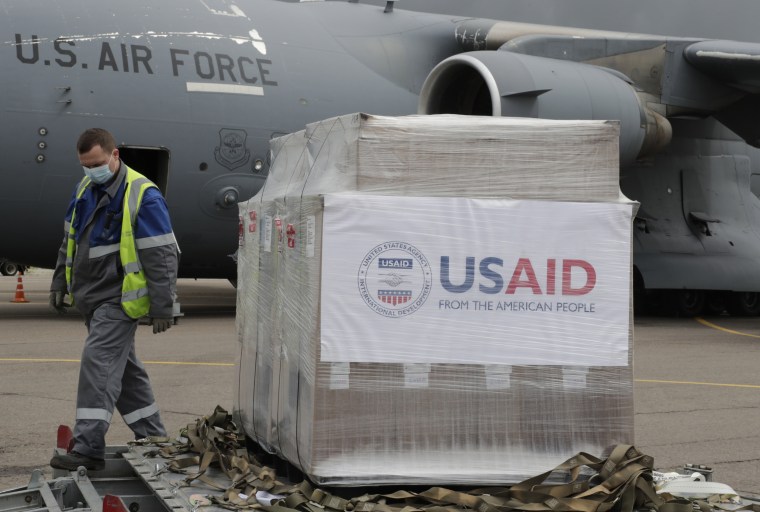WASHINGTON — The U.S. Agency for International Development's efforts to recruit a more diverse workforce have produced mixed results, with promotion rates lagging for racial and ethnic minorities, according to a new report by a government watchdog.
The report comes amid nationwide protests over police brutality and systemic racism in American society, and two weeks after hundreds of staff members at USAID sent a letter to the agency's chief, urging him to hold a meeting with employees and address concerns about diversity at the organization.
The General Accountability Office report issued Tuesday found that even though the overall proportion of minorities at USAID had increased from 33 to 37 percent between 2002-2018, the trajectory for African-Americans was negative. The proportion of Hispanic full-time employees at the agency rose from three to six percent over the 16-year period, but the proportion of African-Americans declined from 26 to 21 percent, it said.
The report found promotion rates lagged for minorities compared to white employees, even when factors such as tenure were taken into account.
The GAO said "racial or ethnic minorities in the Civil Service were 31 to 41 percent less likely to be promoted than whites with similar jobs or years of service," it said.
USAID has previously acknowledged low representation of specific groups in its workforce, but a staffing shortfall has prevented the agency from adequately addressing alleged discrimination or submitting required annual reports on progress on diversity efforts, according to the GAO report.
The Office of Civil Rights and Diversity at USAID, which oversees legally-mandated equal opportunity activities, has "been significantly understaffed," according to the report. The gaps in staffing "are partly due to a lack of senior leadership attention," it said.
Vacancy rates in the civil rights office "were 50 percent or higher in November 2019 and, despite attempts to hire more staff, remained at 30 to 50 percent as of April 2020," the report said.
The GAO recommended USAID ensure that the civil rights office has enough staff to do its work, analyzes demographic data for trends and potential employment barriers and submits annual reports on equal opportunity in a timely manner.
USAID agreed with the report's recommendations, according to a response attached to the report. The agency also said it was devoting more resources to the civil rights office and that it had reduced the time for handling discrimination complaints.
Earlier this month, hundreds of staff members at USAID sent a letter demanding their leadership take action to address systemic racism at a moment when the world is questioning America's credibility as an advocate for human rights.
More than 2,300 staffers have now signed the letter, said two agency officials, who were not authorized to speak on the record.
The appeal was addressed to the agency's acting administrator, John Barsa, but he has yet to respond to the letter, officials told NBC News.
"USAID's workforce has a long tradition of offering candid views and perspectives on policy to leadership over the years, throughout Administrations," said acting USAID spokesperson Pooja Jhunjhunwala.
"The concerns in this correspondence will be considered and responded to appropriately. We all have the right to be heard in our professional capacity, and to have opinions considered thoughtfully," she added.
USAID has a $20 billion annual budget for a mission to promote democracy, fight poverty and respond to natural disasters overseas.
In January, the GAO found the State Department faced similar challenges with minority underrepresentation in the workforce. Racial or ethnic minorities in the State Department's civil service were 4 to 29 percent less likely to be promoted than white coworkers with similar education, occupation, or years of federal service, according to the GAO.
